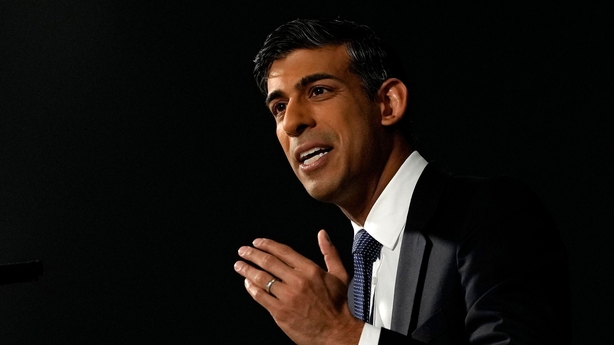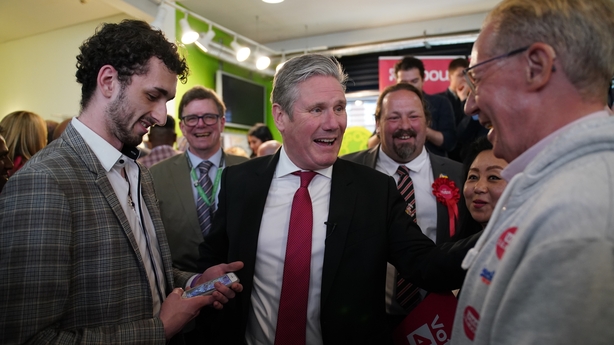Polls have closed in local elections in England where it was predicted the Conservative Party could lose hundreds of council seats.
Most of the results are expected to be declared tomorrow.
It was the first electoral test for British Prime Minister Rishi Sunak while the Labour Party wanted to see if its lead in the opinion polls would translate into votes.
A total of 8,000 seats were up for grabs across 230 councils in England. Partial local elections are held every year under the British system.
Labour was looking to regain control of councils in so-called Red Wall areas where they lost to the Conservatives in the last general election.
These include Middlesbrough, Darlington and Hartlepool in the northeast.
The Liberal Democrats also hoped to gain seats from the Conservatives.
They targeted southeast commuter belt areas such as Kent and Surrey.
One controversial change was the new law that voters must produce photo ID such as passports or driving licenses.
It was claimed it could disproportionately affect younger and poorer voters who were less likely to have such identification.
The Electoral Commission said its "initial assessment is that overall, the elections were well run".
However, "some people were regrettably unable to vote" because of the new photo ID requirement, it added.
Around a quarter of the votes are expected to be counted overnight, with the rest to be tallied during daytime tomorrow.
Analysis: Labour eyes key seats in England's local elections
The British Prime Minister predicted a "hard night" for his party but said the Conservatives were moving away from "box set drama" politics.
These local elections are also likely to be the final set of polls before the next general election, with the results expected to give an indication of whether Labour leader Keir Starmer could be on course for Downing Street.
Mr Sunak's pre-polling day comments came at a think tank event last night, with his remarks reported by the Daily Telegraph.

He said that his administration had worked to improve the economy and move away from the "box set drama" of what went before his premiership, in what appeared to be a reference to predecessors Boris Johnson and Liz Truss.
Mr Sunak became Prime Minister in October after Ms Truss's fiscal measures spooked the markets and led to her downfall.
She had been in Downing Street only 44 days, having taken over from Mr Johnson, who had been ousted following the partygate scandal and complaints over his handling of assault allegations against former deputy chief whip Chris Pincher.
The Tories have set expectation levels low for the local elections, with party chairman Greg Hands defending his claim that the ruling party in Westminster could lose 1,000 council seats.
The Tories trailed heavily behind the Labour Party in opinion polling leading up to today's vote.
Labour is riding high, according to an Opinium survey carried out online between 26 and 28 April, which indicated the red team could secure 44% of the vote share, versus the Tories' 26% - a lead of 18 points.
The poll of polls tracker kept by political website Politico said that, as of Tuesday, Labour had a slightly narrower lead of 16 points but one that was still well into double-digit territory.
It is the vote share that polling experts argue is the outcome that should be the main focus for those wanting a clue as to who could win the next general election, which is widely expected to be held next year.
Mr Starmer, speaking to broadcasters on the eve of the polls opening, said his party had "a positive case to tell" and that he hoped to make electoral "progress".

The opposition leader also said voters could "set Britain on a path of growth, security and the promise of a better future".
He added: "If you believe it's time to build a better Britain you can do something simple - grab your ID, get down to your polling station and vote Labour today."
The results picture is complicated due to the Tories performing poorly in May 2019 when the same set of council seats were last up for election.
Both Labour and the Conservatives fared badly, claiming 28% of the national vote each on that occasion, with then-Tory leader Theresa May - who was struggling to get her Brexit deal through parliament - losing more than 1,300 council seats and majority political control of 44 councils.
It means the Tories headed into today's polls from a low baseline.
The Lib Dems did well as a result of voters turning away from the Tories and Labour in 2019, meaning even a strong showing for the party, which is currently polling around the 11% mark, could fail to produce a bumper crop of extra council seats.







